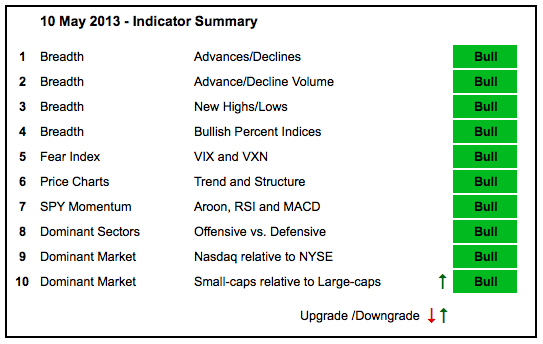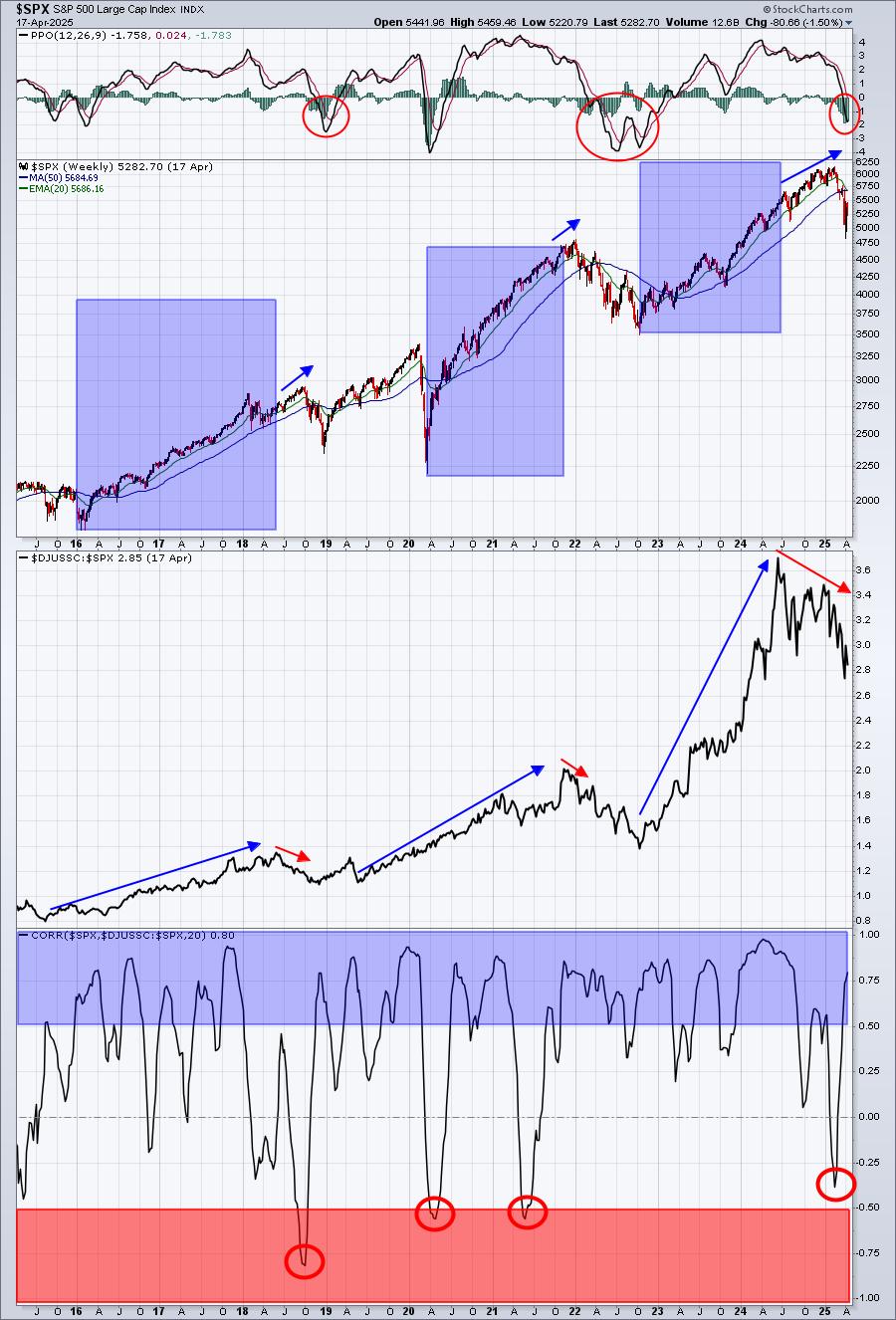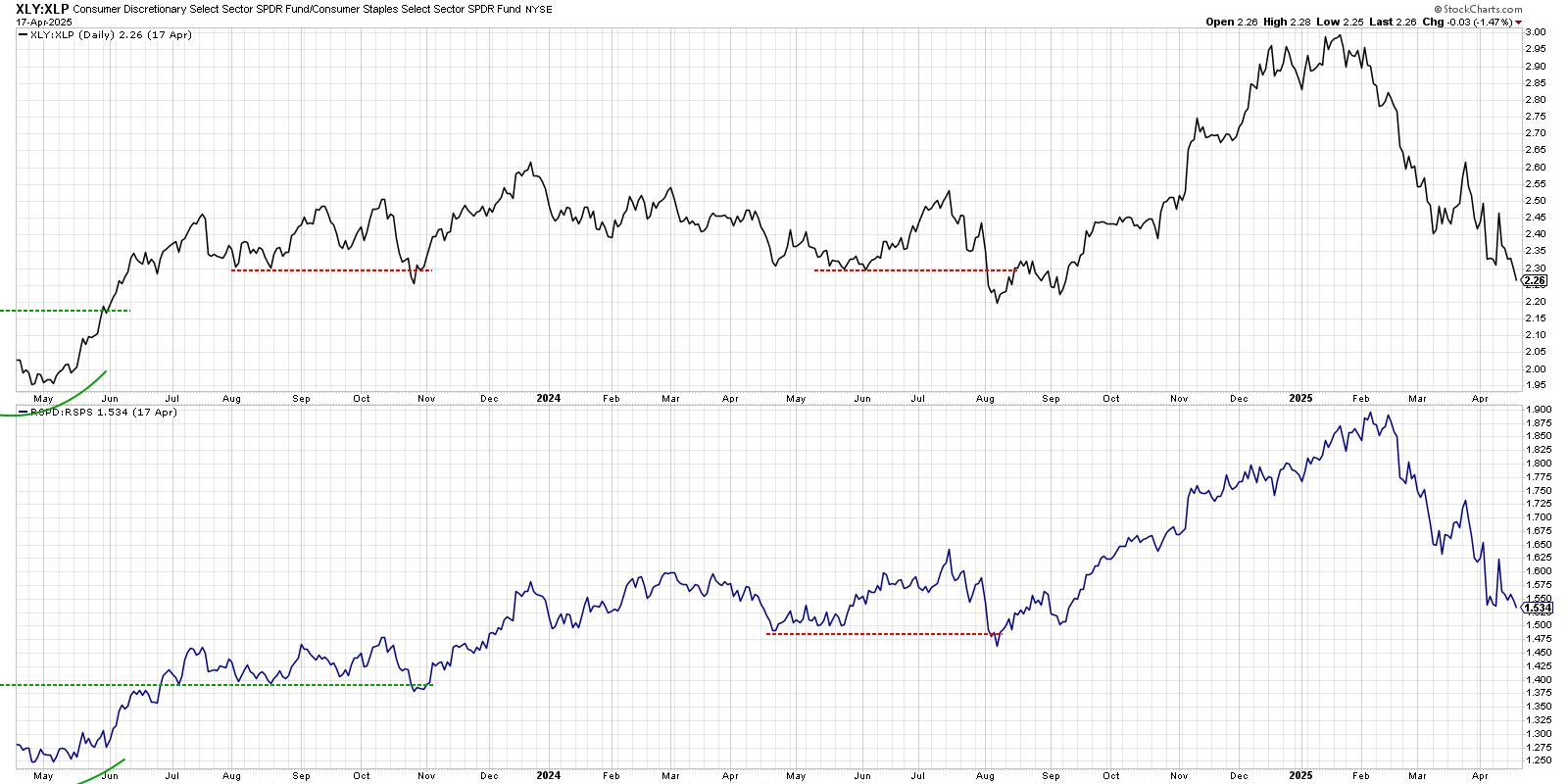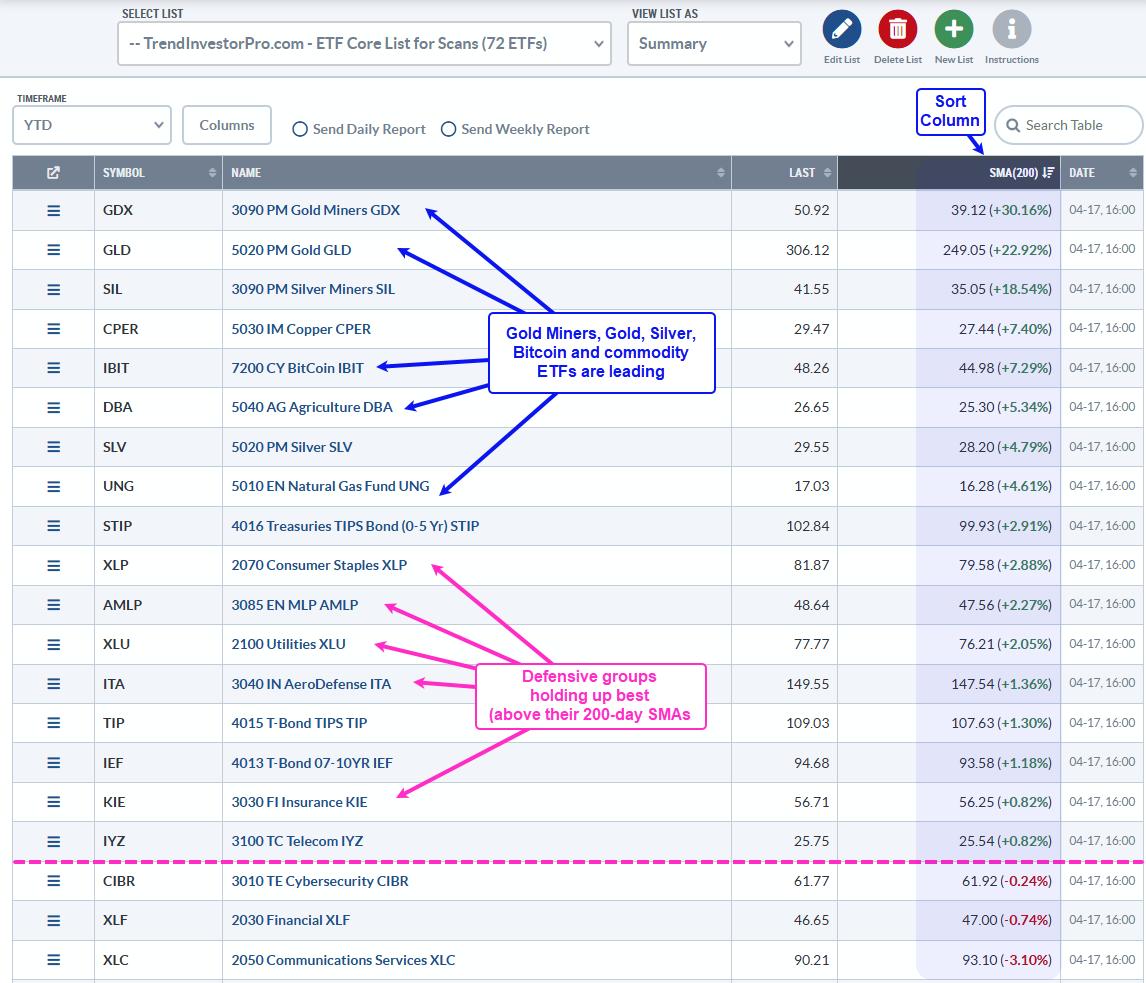It does not get more bullish than this, which may be a sign that things are getting too bullish. The AD Lines, AD Volume Lines, major index ETFs and offensive sectors all hit 52-week highs this past week. It is as if the bull market got back in sync as the offensive sectors wrestled the leadership reigns away from the defensive sectors. Even though the market is looking overextended, as usual, the bulk of the technical evidence remains bullish.


- AD Lines: Bullish. The Nasdaq and NYSE AD Lines hit new highs this week and the April lows mark key support.
- AD Volume Lines: Bullish. The Nasdaq and NYSE AD Volume Lines both moved to new highs this week and the April lows mark key support.
- Net New Highs: Bullish. Nasdaq and NYSE Net New Highs remain firmly positive and their cumulative lines moved to new highs.
- Bullish Percent Indices: Bullish. All nine BPIs are above 50%.
- VIX/VXN: Bullish. The S&P 500 Volatility Index ($VIX) and the Nasdaq 100 Volatility Index ($VXN) are trading near their lows and well below resistance at 20%.
- Trend-Structure: Bullish. DIA, IWM, MDY, QQQ and SPY hit 52-week highs over the past week.
- SPY Momentum: Bullish. RSI bounced off the 40-50 zone for the third time since December. MACD(5,35,5) has been positive since late November. The Aroon Oscillator is back at +50.
- Offensive Sector Performance: Bullish. XLF, XLI, XLK and XLY hit 52-week highs this past week.
- Nasdaq Performance: Bullish. For the first time in a long time, the $COMPQ:$NYC ratio is bullish as it broke above its January high last week.
- Small-cap Performance: Bullish. The $RUT:$OEX ratio surged this week and broke above its late April high. I will count this surge and breakout as bullish for now.
- Breadth Charts (here) and Intermarket Charts (here) have been updated.
This commentary and charts-of-interest are designed to stimulate thinking. This analysis is
not a recommendation to buy, sell, hold or sell short any security (stock ETF or otherwise).
We all need to think for ourselves when it comes to trading our own accounts. First, it is
the only way to really learn. Second, we are the only ones responsible for our decisions.
Think of these charts as food for further analysis. Before making a trade, it is important
to have a plan. Plan the trade and trade the plan. Among other things, this includes setting
a trigger level, a target area and a stop-loss level. It is also important to plan for three
possible price movements: advance, decline or sideways. Have a plan for all three scenarios
BEFORE making the trade. Consider possible holding times. And finally, look at overall market
conditions and sector/industry performance.

About the author:
Arthur Hill, CMT, is the Chief Technical Strategist at TrendInvestorPro.com. Focusing predominantly on US equities and ETFs, his systematic approach of identifying trend, finding signals within the trend, and setting key price levels has made him an esteemed market technician. Arthur has written articles for numerous financial publications including Barrons and Stocks & Commodities Magazine. In addition to his Chartered Market Technician (CMT) designation, he holds an MBA from the Cass Business School at City University in London.
Learn More





